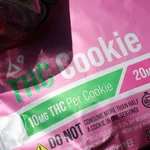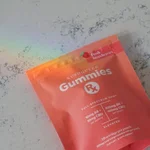Understanding Edibles
Edibles are a popular way of consuming marijuana, as they provide long-lasting effects without the harmful effects of smoking. Edibles are food products infused with cannabis compounds like THC and CBD. Edibles typically take longer to take effect than smoking, and their effects can last from 4 to 12 hours.
Benefits of Edibles
Edibles are a popular choice among cannabis users for several reasons. First, they provide a discreet way of consuming cannabis, as there is no smoke or smell involved. Second, they are a healthier alternative to smoking, as they do not expose the user to harmful chemicals like tar and carbon monoxide. Third, edibles provide a long-lasting high, which is ideal for those who need relief from chronic pain or insomnia.
How Edibles Work
The active compounds in cannabis, THC and CBD, are fat-soluble, which means they bind to fats and oils. When THC and CBD are consumed in an edible, they pass through the digestive system before being absorbed into the bloodstream. The liver converts THC into a more potent form, which can lead to a stronger high.
Blood Clots
Blood clots are clumps of blood that have turned into a gel-like substance. They can form in the veins or arteries and can cause serious health problems if they break loose and travel to vital organs like the brain or lungs. Blood clots are a common health concern, and they can be caused by a variety of factors, including genetics, immobility, and certain medications.
Symptoms of Blood Clots
The symptoms of blood clots depend on their location and severity. Common symptoms include swelling, pain, and redness in the affected area. Blood clots can also cause shortness of breath, chest pain, and dizziness. If you suspect you have a blood clot, seek medical attention immediately.
Risk Factors for Blood Clots
Several factors can increase your risk of developing blood clots, including genetics, immobility, and certain medical conditions like cancer and heart disease. Other risk factors include smoking, pregnancy, and certain medications like hormonal birth control.
The Connection Between Edibles and Blood Clots
There is no evidence to suggest that edibles cause blood clots. However, it is important to note that smoking marijuana can increase the risk of blood clots. Smoking anything exposes the user to harmful chemicals that can damage the blood vessels and increase the risk of clots.
Smoking and Blood Clots
Studies have shown that smoking marijuana can increase the risk of blood clots, especially in the legs. Smoking causes damage to the lining of the blood vessels, which can make them more prone to clots. Smoking marijuana can also increase heart rate and blood pressure, which can further increase the risk of clots.
Edibles and Blood Clots
Since edibles do not involve smoking, they do not expose the user to harmful chemicals that can increase the risk of blood clots. Edibles can have other health risks, like overconsumption and accidental ingestion by children, but they do not increase the risk of blood clots.
Conclusion
While edibles do not cause blood clots, smoking marijuana can increase the risk of clots. If you are concerned about your risk of blood clots, talk to your doctor about lifestyle changes you can make to reduce your risk. Edibles are a safe and healthy alternative to smoking, but it is important to use them responsibly and follow dosage guidelines.












